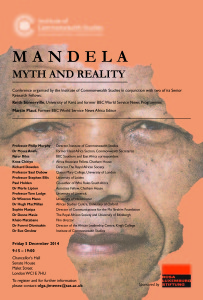By Martin Plaut, Senior Research Fellow, Institute of Commonwealth Studies
It is a year since Nelson Mandela was laid to rest. His death was mourned around the world – and rightly so. Few could hold a candle to Mandela and we all felt our collective loss. But the world moves on and the time has come for a cooler, more careful and nuanced assessment of the man and his legacy.
South Africa continues to fascinate, astonish and appall. Who would have believed that riot police would be ordered into Parliament to eject awkward politicians? Why is the cancer of corruption now so deeply embedded that few government contracts now escape it? What led the ANC government to bolster repressive regimes around the world, when the movement benefitted from international solidarity during its exile?
As Zwelinzima Vavi, the general secretary of the COSATU trade unions said recently, what is taking place “seems to be destroying everything our movement is about.” Vavi concluded that it was “lucky” that former Mandela was too old to “appreciate the depth of our crisis” before he died.
At the same time the country remains a bastion of democracy in a continent in which it is in short supply; a major engine of economic growth and a player on the world stage as a member of the BRICS.
Nelson Mandela always insisted that he was no saint, but rather a disciplined member of a wider movement: the African National Congress. A year on, it is now appropriate to consider what Mandela did for his party, his country and the wider world.
The Institute of Commonwealth Studies has brought together a diverse range of internationally recognised scholars to consider the Mandela legacy. It will assess his historic role in the ending of apartheid and his contribution as the first president of a fully democratic country, as well as Mandela’s wider impact on southern Africa, the African Union and the international community.
The day-long conference will be an opportunity to debate, discuss and assess one of the greatest figures in modern history.


Recent Comments